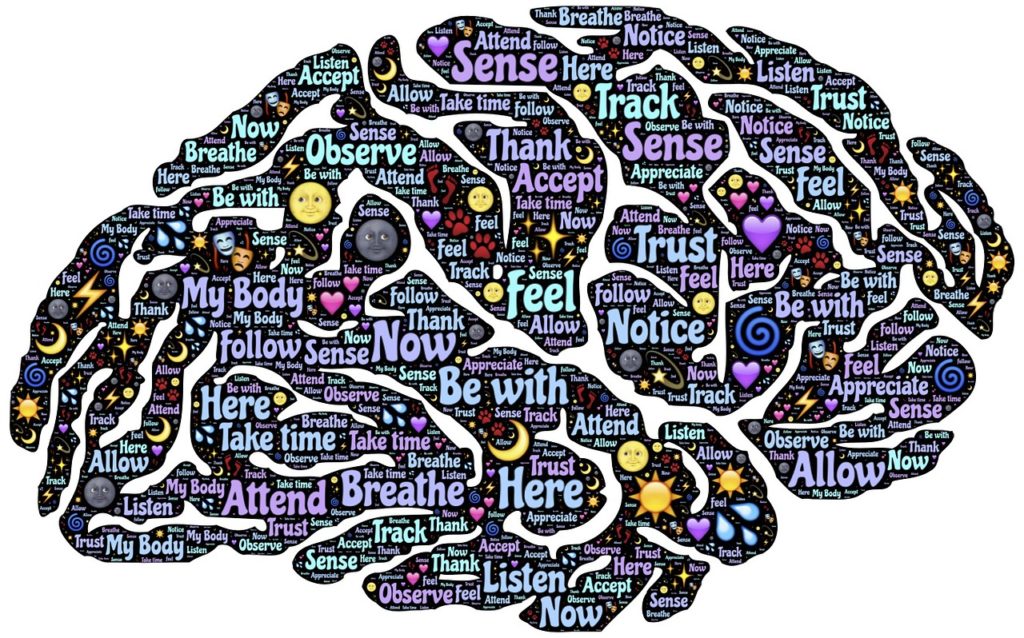
The MIND
– Elephant/Rider Metaphor –
The Rider part of your mind – and here think “R” as in rational – is your conscious being. It’s the thinking, logical, “reasoning” part, but that also does the actual “feeling” (i.e., is the part aware) of those emotions generated by your Elephant.
…is the conscious self (it goes to sleep at night and awakens in the morning)
…is our “rational” being – but it’s also rather slow, often fallible
…controls most of our behaviors (supposedly!)
…is the Being Self – it experiences, as in feels, our emotions that “come up” from the Elephant
…is the Thinking Self – learning, problem-solving, judging, arguing, performing…
…is our Observing Self – can be self-aware, mindful, and able to look at our thoughts & feelings
- …can be proactive…and also able to train the Elephant!!!
- …is the sub-conscious self (the part we don’t “see” and also “never sleeps”)
…generates our emotions, feelings & moods (24/7!)
- …is reactive…and, when needed, can react very fast
…holds all our “prior learning” (facts, beliefs, memories, biases)
…is our like-vs-dislike driver (often sensed as a “gut reaction”)
…manages all of our “automatic” processing (like sensory input, nervous and immune systems, bodily functions [heart rate, breathing, etc])
…stores our skills, habits, models & paradigms
- …provides the stuff of dreams; also hauls around “our baggage”
About the ERM…
The Elephant/Rider metaphor (ERM) is a simple yet practical way to understand how our minds work. But it can also serve as a model – and further as a tool, incorporating a variety of psychological skills – that helps one to problem-solve. For that is what the human mind is constantly engaged in – trying to figure out what to do…about the present experience, or about tomorrow or next week or next year, or about recent events that didn’t go well and leave one with the need or desire to change things.
Consider what it means when one is told to “think for yourself” – which in the context of human behavior means to recognize, acknowledge and understand your feelings, where they come from and why, and to use them to advantage in managing and improving your life experience. Yes, we’ve all been educated, and certainly conditioned, to believe many things including being told how to behave. But do you feel you’ve learned sufficiently well how to process your feelings, or to figure out when necessary why you are having such difficult, painful, or particular reactions (e.g., anxiety, anger, confusion, sadness), and then what to do about it?
_______
Unpleasant feelings can be the sign of a problem; and sometimes our attempts at avoidance of them are not enough or, worse, turn into a much bigger problem. So, sooner or later, the need to problem-solve becomes, well, unavoidable.
This is where an understanding of the ERM – and thus how your mind works – can be a game changer…in getting you to 1) effectively think for yourself, 2) better and more clearly understand what is really going on in your life, and 3) be the problem-solver.
Why the ERM…
- Provides a framework to help one understand how our minds work – so we can:
- take better care of it (and thus our own mental well-being);
- use it [more] effectively; and
improve our thinking & coping skills – and thus our life experience!
Gives us language to communicate in a meaningful, effective, and efficient way – both intrapersonally (i.e., within our own thinking) and interpersonally (i.e, with others).
- Helps us develop and improve the psychological skills to:
- better manage our thoughts, whether pleasant/painful or useful/adverse;
- identify, process, and take responsibility for our feelings; and
- understand and accept what we cannot (or are not yet ready to) change.
Okay, So Now What…?
If you don’t already, maybe the time has come in your life “to own it.” This means take responsibility for the feelings you have…and that you are the one who can effect change in the world. In the words of Thoreau:
“I know of no more encouraging fact than the unquestionable ability of man to elevate his life by conscious endeavor.”
Sam Harris, in his meditation app Waking Up, would agree, as he provides an insight that should give one pause:
“The quality of one’s mind…determines the quality of one’s life.”

